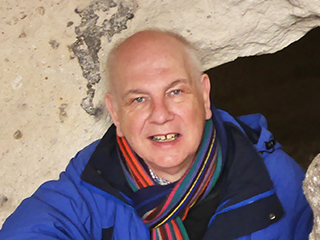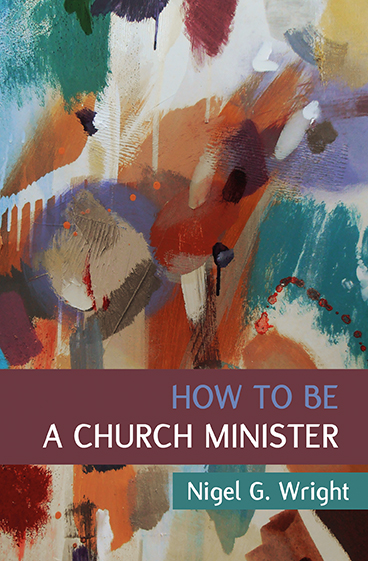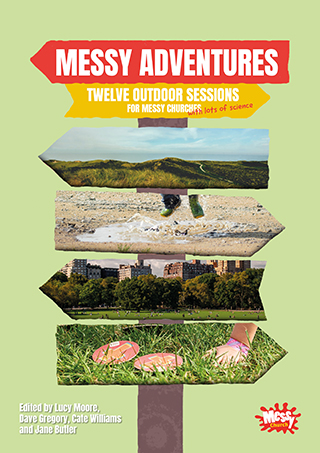Nigel G. Wright explores Paul’s radical vision for a ‘church without walls’ in the third of our articles on the holy habit of fellowship. It’s a vision ever more relevant in an age marred by loneliness, isolation and identity politics.
16 July 2023
When the walls come down
I have long been attracted to the idea of a ‘church without walls’: that churches should be open, warm and accessible to all appeals to me hugely, although I do not underestimate how hard this might be to achieve. Equally challenging is the expectation that walls need to come down inside the church as well as for those who are outside. Achieving this is surely a high priority for genuine Christianity. It is reflected in the apostle’s words:
There is no longer Jew or Greek; there is no longer slave or free; there is no longer male and female, for all of you are one in Christ Jesus.
Galatians 3:28
A new social reality
This particular verse has featured often in modern debates about the equality of the sexes, and not surprisingly. I do not doubt there are massive social, cultural and political implications concealed here – it is a truly revolutionary statement and places Paul’s voice among the most radical of the ancient world, or even of today’s.
But its primary reference is to fellowship, the breaking down of barriers that have been acute sources of conflict and oppression throughout human history. It points to the fact that in the Christian church something new was coming to birth, a new way of being human, of coming together, of forging community.
We have always known that we are social beings – ‘I am because we are’. None of us is an island. We are better together. We may compete, we may at times be in conflict, but at the end of the day to survive and to thrive we need to cooperate. But this verse adds something more.
‘It is a truly revolutionary statement and places Paul’s voice among the most radical of the ancient world.’
Most of us find it easy enough to relate to people who are like us. The challenge is to reach across the barriers, to transcend the differences that threaten to divide, to be defined by something bigger and better. Paul identifies what that is: ‘All of you are one in Christ Jesus.’ It is in Christ that there is a new power, a new creation, a new experiment in being human.
When we focus on being male or female, Jew or Gentile, slave or free, we are bound to disrupt and divide. Perhaps this puts a question mark against the kind of ‘identity politics’ that focuses on our differences. Paul’s words offer a new and higher kind of identity, an experience of life together in the risen Lord, of shared dependence upon and devotion to one in whom God is reconciling the world to God’s own self.
We might celebrate wherever we find human beings letting go of their hostilities and learning to trust and love. God is present there.
But we might also believe that it is most of all in knowing and loving Christ that we find the fullness of our humanity, and of our unity.
‘Paul’s words offer a new and higher kind of identity, an experience of life together in the risen Lord, in whom God is reconciling the world to God’s own self.’
God’s avant garde
In his classic book The Secular City, Harvey Cox describes the church as ‘God’s avant garde’. By this he meant that, in a world that lives without God, the church is a sign of an ultimate future, when God will be all in all (1 Corinthians 15:28). It is called to be in the forefront, ahead of the times.
I thought this counterintuitive, since the only church I could see was one that was reminiscent of the past rather than symbolic of the future! But surely both Cox and Paul are entirely right. In Christ and by the Spirit something new began to happen in the early church, and it continues to this day.
And we embrace and extend this new creation each time we welcome and care for each other, every time we contribute to a loving space in which children might thrive and the old might be honoured, whenever strangers are welcomed for Christ’s sake, the hurting are healed, the stumbling are upheld, the lost are found: in short whenever the church succeeds in being what in Christ it truly is.
‘In Christ and by the Spirit something new began to happen in the early church, and it continues to this day.’
I, therefore, the prisoner in the Lord, beg you to walk in a manner worthy of the calling to which you have been called, with all humility and gentleness, with patience, bearing with one another in love, making every effort to maintain the unity of the Spirit in the bond of peace.
Ephesians 4:1–3
Scripture quotations are taken from the New Revised Standard Version Updated Edition. Copyright © 2021 National Council of Churches of Christ in the United States of America. Used by permission. All rights reserved worldwide.

Dr Nigel Wright is the principal emeritus of Spurgeon’s College London. He is a Baptist minister, a theological teacher and a widely published author.

How To Be a Church Minister
As well contributing to our Holy Habits resources on fellowship, and to our Guidelines Bible reading notes, Nigel has written How to be a Church Minister for BRF, setting out what is involved in being a Christian minister: its joys and challenges, its responsibilities and privileges. It will enable you to understand your calling more fully and inform your practice, and also stimulate careful and biblical reflection. It is relevant across a wide spectrum of church traditions, both to those already in ministry and to those contemplating the vocation. It is set to be a seminal volume on the subject.

If you’re looking for fun, creative and informative activities for the summer holidays, look no further than Messy Adventures an exciting collection of twelve sessions with a strong scientific focus, questions to discuss, ‘Big Thinking’ provided by scientific experts and suggestions for creative ways of responding in Christian worship with awe, wonder and celebration.
